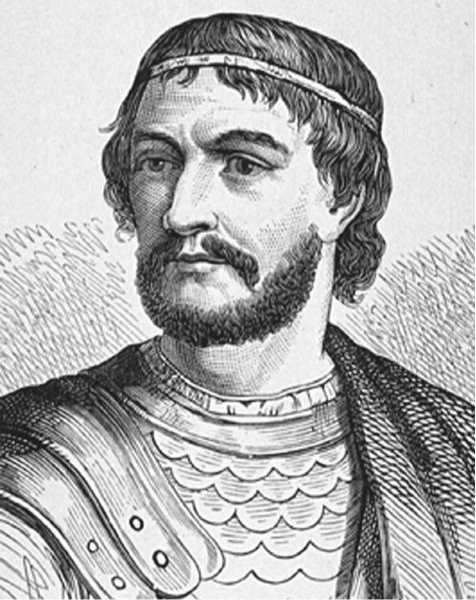The Franks adopted few aspects of Roman law and administrative rule, but they did maintain one significant link with a late Roman practice. When Roman power was fading and the people could no longer look to the legions, or army, for protection, they had turned to the owners of large villas, or country estates, who controlled private armies. The serfs gathered their dwellings around the villa in what came to be called villages.
Villas were also known as manors (source of the word "mansion"), and the Frankish version of the late Roman system came to be known as manorialism (muh-NOHR-ee-ul-izm). Under manorialism, large num-

Charles Martel was a great leader of the Frankish kingdom during the Merovingian Age, and it was his grandson, Charlemagne, who gave his name to the next great dynasty: the Carolingians. Reproduced by permission of Archive Photos, Inc.
Bers of serfs became dependent on a large landowner for protection. A serf was like a peasant, a farmer with a small plot of land; but serfs, whose name comes from the same root as "serve," were more like slaves.
The manorial system provided the framework for feudalism. This system helped bring an end to the Merovingians as power shifted from Merovingian kings to the Frankish aristocracy, who exerted influence through the office of majordomo.




 World History
World History









